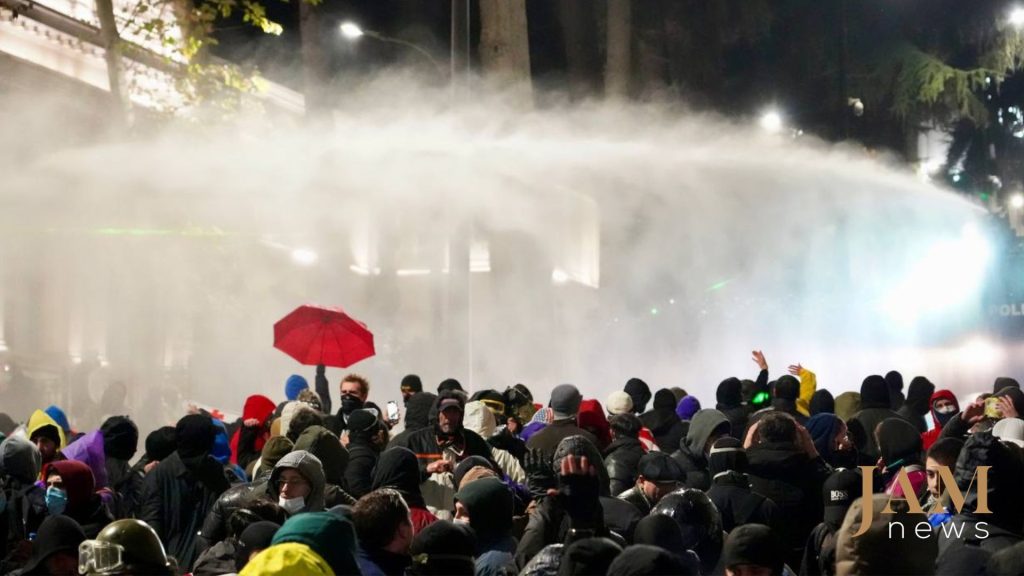Latvia, Lithuania, and Estonia have agreed to impose sanctions on Georgian officials responsible for suppressing protests over Tbilisi's shift away from EU integration. Meanwhile, tensions rise between the EU and Georgia over the latter's democratic erosion and increasing autocratic rule.
Gabrielius Landsbergis, Lithuania’s Foreign Minister, confirmed the sanctions, stating that the three Baltic countries would target those involved in suppressing "legitimate protests" in Georgia.
He wrote on X on 1 December:
"The three Baltic States jointly agreed to impose national sanctions against those who suppressed legitimate protests in Georgia. Opponents of democracy and violators of human rights are not welcome in our countries."
Kaja Kallas, the European Union’s High Representative for Foreign Affairs and Security Policy, also expressed concern, promising "direct consequences" for Georgia's government.
In a statement on X, Kallas condemned the violence against the protesters and criticized Georgia’s ruling party for distancing the country from its EU ambitions.
"We stand with the Georgian people and their choice for a European future," Kallas wrote, adding that the EU would take "direct consequences" in response to Georgia's ongoing "democratic backsliding."
DW reported that Kallas did not rule out sanctions against Georgia or restrictions on visa issuance as potential EU measures in the coming weeks.
Related:
- Ukraine to Georgia: You’re throwing your country into Russian yoke
- Georgia’s Maidan Moment: Tbilisi rises against Russian influence
- Stolen election: how the Georgian Dream helped itself to 15% of all votes cast
- US suspends strategic partnership with Georgia over EU accession halt
- Georgian president refuses to step down, rallies national resistance to Russian influence
- Georgian authorities deploy unprecedented force as pro-EU protests spread nationwide
- Ukraine condemns violent crackdown on peaceful protests in Tbilisi
- Georgian businesses, diplomats, universities launch strikes after crackdown on pro-EU protesters
- European institutions halt contacts with Georgia’s government

